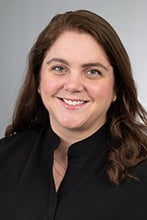Birmingham, Ala. (Dec.1, 2023) — As we get closer to the cold-weather months, respiratory virus season has arrived, and cases of the flu, COVID, and RSV are expected to increase. Health experts say anyone can get a respiratory virus infection, but some people have a higher risk of getting sick from it.
Dr. Alicia Webb, a pediatric emergency physician at Children’s of Alabama, says the respiratory viruses going around now are generally cold viruses, but they also include COVID-19, flu and RSV.
“Most of the kids are experiencing a runny nose, cough, congestion, sometimes it can cause fever, and in children who have a pre-disposition to asthma attacks, it can worsen their asthma,” said Webb.
Webb says respiratory viruses are spread through contact with people, droplets in the air, sneezing and coughing. She also says many respiratory viruses do have similar symptoms, but there are some ways parents can make sure their children stay healthy.
“It is important to make sure children are washing their hands well,” said Webb. “It is also very important for parents to make sure they are teaching their children how to cover their mouths when they cough and also try to sneeze into an elbow, away from people.”
Webb says if your child becomes sick, make sure they stay hydrated and older children blow their noses well. She says for infants or younger children, parents can suction their children’s noses with a saline solution or a nasal solution. Webb says most children will get better within a few days. However, she warns that a cough may linger for a few weeks, even after the respiratory symptoms disappear.
Vaccines are available for all three major respiratory viruses for the first time in U.S. history: COVID-19, flu and RSV. Webb says vaccines are another way to prevent illnesses.
“We know from many years of study of the flu vaccine that if you have the flu vaccine, even if you catch the flu, it is usually mild and will prevent you or your child from being hospitalized from that illness,” said Webb. “The RSV and COVID vaccines are other great options to prevent your child from getting RSV and COVID.”
The flu vaccine is recommended each year for anyone six months and older. The COVID-19 vaccine is recommended for anyone six months and older who has not received a vaccine in the past two months. The RSV vaccine is recommended for all pregnant women at 32-36 weeks of their pregnancy if the baby will be born during RSV season (usually fall to spring in the U.S.). Doctors can also give babies a new type of shot that contains antibodies against RSV. It can be given to babies younger than eight months old during or right before RSV season. It can also be given to babies 8-19 months old who are entering their second RSV season and are at higher risk of getting very sick if they get an RSV infection.














